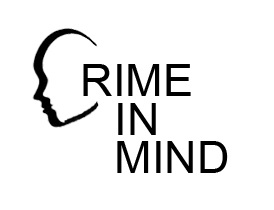We are delighted to announce that, from a strong field, we are supporting two of these awards this year – one for developing research priorities with respect to forensic mental health service provision and the other to develop a website, based in the UK, that will extend child and adolescent offender mental health research development, engagement and dissemination worldwide.
Forensic mental health service research priority setting
Dr Howard Ryland, of Oxford University, and Dr Danny Whiting, of Nottingham University, and already established researchers, noted the high cost and complexity of forensic mental health services but the relative paucity of funding for relevant research. Their concerns, therefore, are to get focus on the most important questions for research in this field, raise awareness of them and increase the chances of attracting major grant funding accordingly.
In a first step towards supporting this work, Crime in Mind set up a webinar that included many Uk-based world leading academics across the widest possible relevant field to reflect on their priorities. This took place on May 1st 2024; a recording is still available to members by special application. Ideas were very wide ranging and almost every single one seemed crucial to some aspect of practice when taking into account the inter-agency nature of the work.
Howard and Danny then had to focus. They decided to centre on clinical practice and, to that end, started exploring adoption by the James Lind Alliance (www.jla.nihr.ac.uk) – a non-profit organisation that brings patients, carers and clinicians together in Priority Setting Partnerships (PSPs). These identify and prioritise evidence uncertainties in the adopted field – the ‘unanswered questions’ – that they agree are the most important for research in the clinical topic area. Through this, they help ensure that those who fund health research are aware of what really matters to patients, carers and clinicians. Such process, which requires steering by the JLA, is a form of research in itself – mapping and engaging all who have relevant interests, systematically surveying for questions, checking publication databases for the extent of answers to these and recruiting a representative panel of experts by training and by experience. The material is taken through shortlisting to a final selecting workshop.
The Crime in Mind monies will pay for the JLA advisor time and about a third of the other costs with outcomes envisaged as including formal James Lind Alliance listing – which provides considerable weight in later project funding – publications of key findings along the pathway and further engagement of prospective researchers through disseminating the work at conferences. Clinical forensic mental health research will gain much higher visibility beyond as well as within its core group.
Group of International Researchers in Adolescent Forensics website initiation and development (GIRAF)
In 2020, Dr Heidi Hales (Betsi Cadwaladr University Health Board and Bangor and Cardiff Universities), Dr Annie Bartlett (St George’s University of London), Fleur Souverein (Erasmus University, Rotterdam, NL) and Enys Delmage (Nga Taiohi, National Youth Forensic Unit, Wellington, and University of Otago, NZ) started to build a network of academics and clinicians with research experience of children and young people caught in criminal offending and with likely mental health problems, as well as the laws and services surrounding this. Membership and country representation have both grown, by largely personal knowledge and contacts and this funding is to support development of a website to extend reach – to bring in more contributors with relevant knowledge and expertise from a wider range of settings, especially in respect of socio-economic and prevailing cultural perspectives.
One of the key considerations behind the initial development was recognition that the young people at the heart of the work have much in common in their mental health and experiential problems but that service solutions and interventions, including legal processes, differ widely between countries. This seemed like an important learning opportunity, whether by simple outcome comparisons or more complex approaches with similarities to clinical trials. A GIRAF paper covering some aspects of service comparisons has already been puiblished1.
At the heart of the GIRAF proposal is the need to diversify and increase GIRAF’s national and international representation way beyond the linking in only through personal contacts, and thereby develop research methodological models to encompass the variety of need, raise the chances of research funding and then to disseminate needs and findings widely.
Crime in Mind will fund the development of a GIRAF website and relevant related activities to help ensure the wide reach and research developments envisaged. What does ‘secure’ care mean in different jurisdictions? How do physical establishments vary (size, architecture, relational and procedural security, culture of care)? How can they be made more homely whilst safe and secure? These researchers have already provided a sample of the questions they seek to answer through comparative national research – some of it already started:
- What are the thresholds for detention and what are the options to divert children and young people from detention?
- What are the characteristics (social, educational, mental health, criminological, cultural) of those children and young people detained within different jurisdictions?
- How are cultural/ethnic characteristics observed and met within and across sectors (mental health, welfare, justice)? Are there explicit strategies to manage any biases? Have they been tested for effectiveness?
- What are the long-term outcomes for those detained and how may be holistic appreciation of these be optimised?
and the Hales, Bartlett, Souverein and Delmage top pick:
- How do children and young people experience and understand their secure care admission?
1 Souverein, F., Hales, H.,Anderson, P., Argent, S., Bartlett, A., Blower, A., Delmage, E., Enell, S., Henriksen, A-K., Koomen, K. & Oostermeijer, S. (2022) Mental Health, welfare or justice: An introductory global overview of differences between countries in the scale and approach to secure placements of children and young people. Criminal Behaviour and Mental Health 32(3): 238-247. https://doi.org/10.1002/cbm.2234

